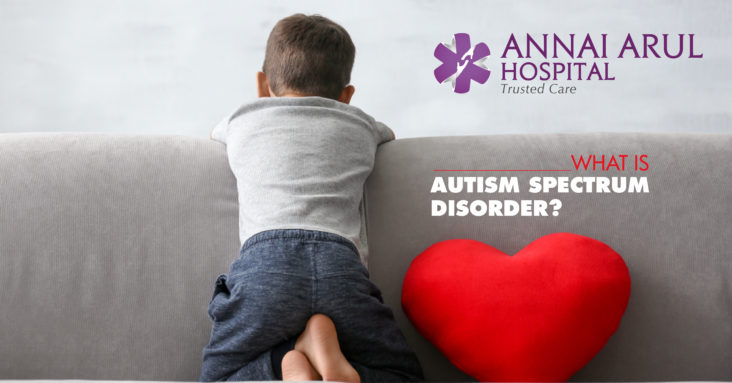Autism spectrum disorder (ASD) includes several conditions that earlier was considered different from each other and now encompasses autism, pervasive developmental disorder, and Asperger’s syndrome. The causes for these conditions though are not really clear.
ASD is a neurological and developmental disorder that begins early in childhood and lasts throughout the life of a person. It mainly affects how a person interacts with others, communicates and learns things.
What are the symptoms?
ASD is observed in children within the first year. Though a small number of children seem to develop normally in the first year, and then go through a period of regression between 18-24 months when they develop signs of autism or ASD.
The unique pattern of behaviour include:
Low functioning to high functioning behaviour
Difficulty in learning and low intelligence
Some others have normal to high intelligence
But have difficulty in communication
Difficulty in applying knowledge to everyday life and social situations
Specific symptoms
Fails to respond to his or her name or appears not to hear you
Resists cuddling or affection and prefers to be alone
Poor eye contact and facial expression
Delayed speech or gradual loss of speaking ability
Inability to start a conversation and speaks only to ask for something
Speaks with an abnormal tone or rhythm
Repeats our words and phrases verbatim but doesn’t understand
Doesn’t seem to understand simple questions
Doen’t express feelings or emotions
Approaches a social interaction either passively, aggressively or in a disruptive manner
Difficulty in recognising non-verbal cues, such as recognizing other person’s facial expression
Because of the individually different symptoms, the severity of the condition can not be easily diagnosed.
What causes ASD?
ASD has no single known cause, given the complex nature of the disorder and the fact that symptoms vary from person to person. There are many causes both genetic and environmental, that play a vital role.
Genetic factors: In some children, autism spectrum disorder can be associated with a genetic disorder. In other genetic changes increases the risk of the disorder. The genes impair brain development or the way the brain cells communicate, and this determines the severity of the symptoms.
Environmental factors: Factors such as viral infections, medications or complications during pregnancy or environmental pollution can play a significant role in triggering brain cell mutation that causes ASD.
Prevention of ASD
Actually there is no way yet to prevent ASD, but there are treatment options for the disorder. Early diagnosis and intervention can be most helpful to improve the behaviour, communication and social skills of the child. Though it is challenging to outgrow the condition, children will learn to function more acceptably.


